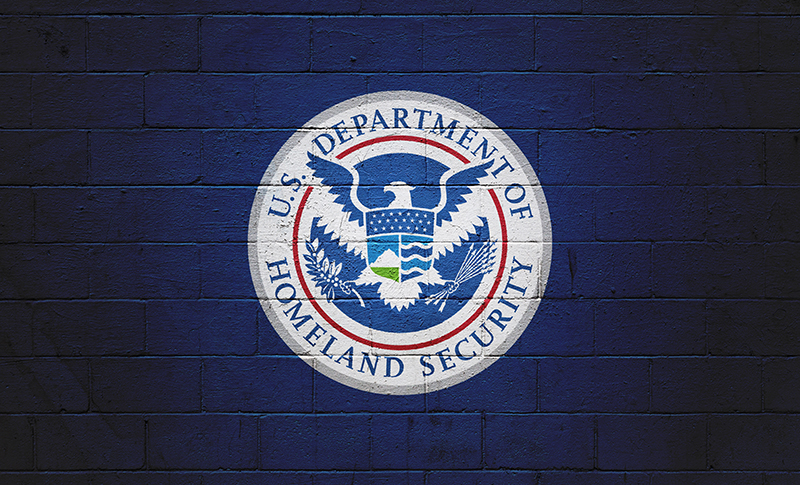
On July 7, 2023, the U.S. Department of Homeland Security (DHS) announced it created a new parole program to allow nationals from four countries to skip the line to enter the United States ahead of all other green card-eligible aliens who must wait outside the country for an immigrant visa to become available.
The program is specifically aimed at “family reunification” for nationals of Colombia, El Salvador, Guatemala, and Honduras. DHS estimates that, today, as many as 73,500 aliens (32,600 Salvadorans; 17,400 Colombians; 12,800 Guatemalans; and 10,700 Hondurans) could be eligible to be paroled into the country and receive work authorizations under this program.
In addition to meeting specific eligibility criteria set out by DHS, nationals from these countries must demonstrate that they are a beneficiary of an approved Form I-130, Petition for Alien Relative to be considered under the new process. In other words, they are in line to be considered for a family-based green card, but will no longer have to wait in their home countries for one to become available.
This program builds off of precedent set by the Bush and Obama administrations, which set up similar, unauthorized parole programs in 2007 and 2014 to allow nationals from Cuba and Haiti, respectively, to be paroled into the United States if they had approved Form I-130s, establishing valid familial connections to U.S. citizens or green card holders.
Filing a Form I-130 establishes the beneficiary’s “place in line” for an available green card, but does not guarantee they will be approved. Annual green card issuances are subject to a numerical limits (caps) by statute, and therefore many Form I-130 beneficiaries must wait years to enter the United States as a green card holder. The annual limit for family-based categories depends on the previous year’s immigration levels and is set at a minimum of 226,000 visas; under the overall limit there are numerical caps for specific categories, such as siblings of adult U.S. citizens or unmarried adult sons and daughters of permanent residents.
This program, like other similar parole programs that have been instituted by the Biden administration since January 2021, is inconsistent with the language and history of the parole statute, which has afforded DHS increasingly limited authority to parole aliens into the United States on a “case-by-case” basis for “urgent humanitarian or significant public benefit” reasons. While DHS does claim that each parole grant will be made on a “case-by-case” basis, the program contradicts this claim by laying out specific eligibility requirements that applicants must meet in order to participate in the program, defining a class of people in a legislative manner rather than describing general DHS officer discretion.
Statute does not define “urgent humanitarian” or “significant public benefit,” and its interpretation has historically been construed by the Secretary of Homeland Security. Historically, DHS has interpreted “urgent humanitarian reasons” as “urgent medical, family, and related needs” and “significant public benefit” as limited to situations as limited to “persons of law enforcement interest such as witnesses to judicial proceedings.”
DHS argues that the program is justified as a “significant public benefit,” however, by furthering the U.S. government’s “holistic migration management strategy,” by specifically, “1) promoting family unity; 2) furthering important foreign policy objectives; 3) providing a lawful and timely alternative to irregular migration; 4) reducing strain on limited U.S. resources; and 5) addressing root causes of migration through economic stability and development supported by increased remittances.” Notably, these considerations would not be specific to any one individual alien furthering a “case-by-case” determination, but rather to an entire class of people.
Congress, not the Executive Branch, possesses plenary power over immigration under the U.S. Constitution. Entry under parole as an alternative to a visa for broad classes of aliens, such as aliens who have family in the United States and may one day be eligible for an immigrant visa, has expressly not been authorized by Congress.
The creation of this program is also another method the Biden administration is employing to obscure data underlying the mass illegal immigration crisis in the United States. By paroling aliens into the United States from these countries, which in recent years have accounted for large percentages of border encounters, the Biden administration will be able to further reduce the number of aliens apprehended between ports of entry DHS reports each month, while still allowing large numbers of inadmissible aliens to enter, remain, and work in the United States without a visa.
In the program notices, DHS stated that parole will be granted for periods of “up to three years,” but clarified that aliens paroled into the United States under this program may request additional periods of parole once their parole period expires. Parole, granted pursuant to 8 U.S.C. 1182(d)(5), however, is not a lawful immigration status and was never meant to be used as a basis for long term residency and employment in the United States. Rather, parole is temporary permission to enter and remain in the United States for specific, temporary purposes. Under federal law, a parolee is still considered to be an “applicant for admission,” and their parole may be terminated by DHS at any time.
In the event a parolee is denied an additional grant of parole, it also remains unlikely that they will meet the current administration’s enforcement priorities. It is more likely that DHS will allow aliens to have their parole extended, much like DHS’s treatment of Temporary Protected Status, which has proven to be anything but temporary.
